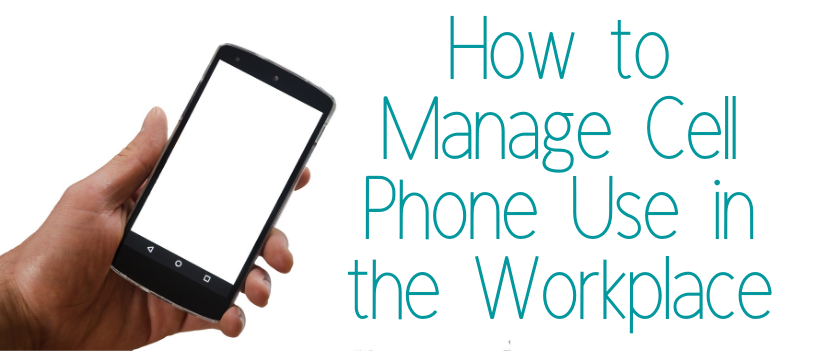Cell phones have become an incredibly important tool in our society. From communicating with friends and family, checking the weather, to completing business tasks such as responding to emails, mobile devices provide us with a portable and convenient way to enhance our daily lives.
According to Pew Research Center, about 96% of Americans own a cell phone. An estimated 81% own a smartphone. With such widespread use, it is no wonder that the workplace has also seen an uptick in mobile phone use in the last decade. While these devices have the potential to aid our work and improve our quality of life, they can also become a distraction and lead to reduced productivity for employees. According to The Hartford Small Biz Ahead, it is important to have a written cell phone policy in place. Here’s what it should include:
Guidelines for Appropriate Use
Lay out some ground rules for how and when cell phones may be used in your place of business. This is different for every company, but here are a few good things to address:
- Where cell phones can be used: do you want to ban cell phones in the meeting room? The kitchen? Are employees allowed to keep their phones on their desks or should they be stowed away in a bag or drawer when not in use?
- When cell phones can be used: Is this only during break time or is intermittent use throughout the day permissible? Be sure to ban mobile device usage while driving and operating heavy machinery to avoid injury.
- How frequently employees can accept personal calls and how long they may be
- A policy on social media use in the workplace
- Policies on non-communicative use such as gaming and listening to music
Be sure to be flexible and remember that your employees do have a life outside of work and may occasionally need to attend to urgent personal matters. Avoid a morale problem by setting reasonable standards and being open to feedback.
A Guide to Cell Phone Etiquette
Remind your employees to follow proper cell phone etiquette. Add items such as “take personal calls in private,” “avoid using your phone’s camera in the workplace,” and “keep calls short and as quiet as possible” to encourage staff to be considerate of one another while using their phones. This will decrease workplace disruptions and ensure that everyone feels their privacy is respected.
Disciplinary Consequences
Lay out any disciplinary consequences for employees who violate the cell phone policy. You may wish to have an escalating scale for multiple infractions (a verbal warning, then a written warning, etc.) to discourage repeat offenders. Once you have these penalties written out, be sure to stick to them. If you do not follow through, your employees may come to see your policy as optional.
Avoid micromanaging staff and looking over their shoulders constantly, which can lead to uneasiness and resentment amongst employees. Simply lay out your policies and the consequences if they are not followed and trust your team to act accordingly. Cell phones do not have to be a negative in the workplace as long as they are used appropriately, and everyone is on the same page in regard to proper mobile device etiquette.
